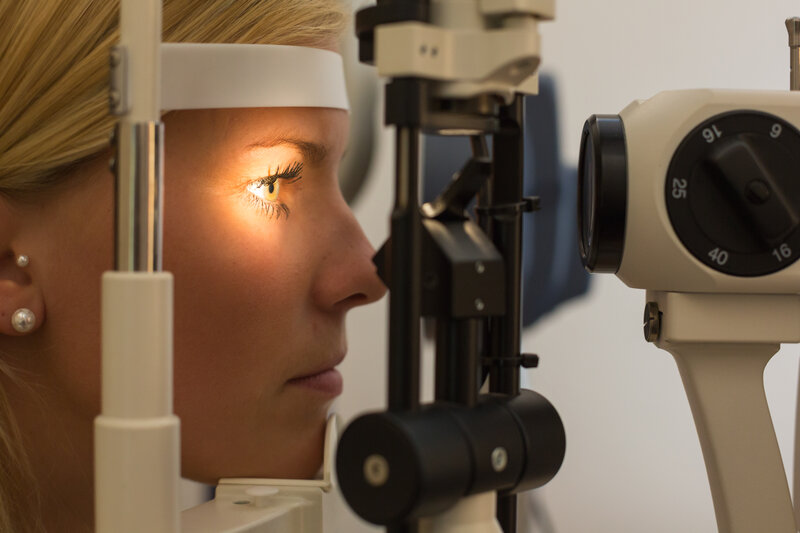In the hustle and bustle of daily life, it’s easy to overlook the importance of regular eye exams. However, maintaining your eye health is as critical as visiting your dentist or getting a physical check-up. Annual eye exams are not only pivotal in detecting vision problems but are also vital in identifying early signs of serious health issues. There are many essential benefits of an annual eye exam and why it should be a non-negotiable appointment on your yearly calendar.
Why Annual Eye Exams Matter
Many people assume that eye exams are only necessary if there’s a noticeable problem with their vision. However, many severe eye diseases and conditions do not exhibit symptoms in their early stages. By the time you notice something is wrong, the condition might have progressed significantly. Annual eye exams are proactive measures that help detect problems before they escalate into more severe complications.
How Often Do I Need an Eye Exam?
The American Optometric Association (AOA) provides specific guidelines on the frequency of eye exams, which vary according to age, health conditions, and risk factors. For adults with normal eye health, the AOA recommends a comprehensive eye exam every one to two years. However, for those who have existing eye conditions, wear glasses or contact lenses, or have a family history of eye disease, an annual exam may be necessary. This yearly check-up ensures that any adjustments to vision correction are made promptly and that any progression in eye conditions is monitored closely.
For children, the AOA advises an initial eye exam at 6 months, followed by exams at age 3 and before entering first grade, and biennially thereafter if no vision correction is required. School-age children who need glasses or contact lenses should be examined annually. These regular assessments are crucial as children’s eyes develop rapidly, and changes in vision can have a significant impact on their learning and development. For seniors over the age of 65, annual exams are recommended to monitor for age-related ocular changes such as cataracts, macular degeneration, and glaucoma. These guidelines ensure that individuals at every stage of life receive the appropriate eye care necessary to maintain optimal vision and eye health.

Early Detection of Eye Diseases
Early detection is perhaps the most compelling reason to keep up with your annual eye exams. Conditions like glaucoma, macular degeneration, and cataracts develop gradually. Regular eye exams allow eye care professionals to detect such diseases at an early stage, which is crucial for effective management and treatment. Glaucoma, for instance, is known as the “silent thief of sight” because it typically shows no symptoms until significant vision loss has occurred. Early detection through an eye exam can lead to interventions that preserve vision.
Updating Prescription Lenses
Vision can change subtly and gradually, often without noticeable symptoms until the change is significant. Regular eye exams ensure that your prescription for glasses or contact lenses is up to date. Wearing the correct prescription is vital not only for optimal vision but also for preventing vision-related problems such as headaches and eye strain.
Assessment of Overall Health at Your Eye Exam
Your eyes are a window to your overall health. They are the only place in the body where blood vessels can be viewed without invasive viewing techniques, which means they can reveal crucial clues about your overall health. Conditions like diabetes, high blood pressure, and high cholesterol can be detected through changes in the blood vessels of the eyes. During an eye exam, your optometrist can spot these tell-tale signs, often before you visit your general practitioner.
Impact on Academic and Professional Performance
For children and adults alike, vision quality directly impacts performance at school and work. Children, in particular, may not realize they have a vision problem; they might simply find academic work challenging and avoid engaging with it. An annual eye exam ensures children have the visual resources they need to succeed in school. For adults, maintaining optimal vision is just as important, particularly in professions requiring precise visual tasks or long hours in front of computer screens.
Digital Eye Strain
In today’s digital age, where screens dominate our lives, digital eye strain has become increasingly common. Symptoms include dry eyes, irritation, fatigue, and blurred vision. An annual eye exam can discuss symptoms and find solutions to alleviate them, such as prescribing computer glasses designed to reduce eye strain.
Schedule Your Eye Exam Today
Annual eye exams go beyond just ensuring your vision is sharp; they are a crucial part of maintaining overall health. By detecting eye conditions in their early stages to identifying potential health issues reflected in eye health, these exams play a significant role in your overall well-being. Whether you’re experiencing symptoms or not, an annual eye exam is essential in caring for both your vision and your health, ensuring you continue to enjoy the best possible quality of life. Don’t take your eyes for granted—make sure to schedule your next eye exam today and keep it a regular part of your health care routine.
At Optical Illusions, we are proud to offer the most comprehensive eye exams. Contact our team to schedule your appointment at 1 of our 4 conveniently located offices.



